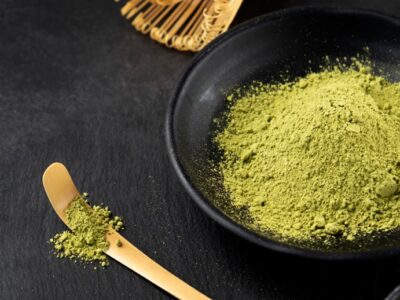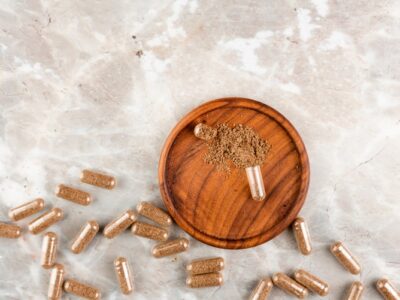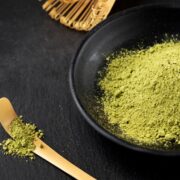
If you’ve been using 7-OH tablets for pain, focus, or stress relief, it’s natural to wonder — can these show up on a drug test?
Whether it’s for work, athletics, or legal compliance, drug testing is serious. And when you’re using something as potent as 7-hydroxymitragynine, it’s smart to ask the right questions ahead of time.
This guide breaks down how 7-OH interacts with common drug tests, what kind of tests could detect it, and what steps you can take if a screening is coming up.
First Things First: What Is 7-OH?
7-hydroxymitragynine (commonly known as 7-OH) is a naturally occurring compound in the kratom plant, known for its strong interaction with opioid receptors. While it’s not an opioid by classification, it shares similar mechanisms — which is why many users find it helpful for relief without the heavy side effects.
Because of this overlap, a common concern arises: Will using 7-OH tablets cause me to fail a drug test?
Let’s break it down by test type.
Do Standard Drug Tests Screen for 7-OH?
Urine Tests (Most Common)
Most standard urine drug tests do not test for kratom or its alkaloids, including 7-OH. These tests are typically designed to detect:
- THC (cannabis)
- Cocaine
- Opiates (heroin, morphine)
- Amphetamines
- PCP
Unless you’re being given a custom or expanded panel that includes kratom alkaloids, 7-OH is unlikely to be detected.
That said, high doses or frequent use of kratom products may, in rare cases, trigger false positives for opioids — due to how similar 7-OH is in its action.
Blood Tests
Blood tests are usually more accurate and used in medical or legal investigations. They can detect recent substance use but have a shorter detection window — usually only a few hours after ingestion.
Unless the lab is specifically testing for kratom compounds, 7-OH typically won’t be flagged.
Saliva Tests
These tests are convenient and quick but only detect substances used in the last 24–48 hours. Like with urine, 7-OH isn’t on the standard saliva test panel, so unless your gummy or tablet contains THC or another flagged ingredient, it’s unlikely to show up.
Hair Follicle Tests
Hair drug tests can show long-term use (up to 90 days), but they still require the lab to be looking for specific compounds.
In rare cases, chronic kratom use could lead to 7-OH traces in the hair, but unless the test is customized, it won’t flag standard 7-OH use.
Can 7-OH Trigger a False Positive?
The short answer: it’s possible, but unlikely.
Because 7-OH binds to mu-opioid receptors, some tests may mistake it for opioid activity. This could potentially lead to a false positive, especially in older or less precise testing methods.
If that happens:
- Request a GC-MS (Gas Chromatography-Mass Spectrometry) confirmation test.
- Provide full disclosure about the kratom-based supplements you’ve taken.
- Ensure the brand you’re using, like ELYXR, offers clear product labeling and third-party testing to support your claim.
Which Drug Tests Can Detect 7-OH?
For most casual users, you won’t face tests this advanced — but in high-stakes legal or medical situations, these precision tests may be used:
- GC-MS (Gas Chromatography-Mass Spectrometry)
- LC-MS/MS (Liquid Chromatography-Mass Spectrometry)
These tests break down compounds at a molecular level and can detect kratom alkaloids, including 7-OH. However, they’re expensive, time-consuming, and rarely used unless specifically requested.
How Long Does 7-OH Stay in Your System?
There’s no one-size-fits-all timeline — but here’s a rough idea:
- Urine: 3 to 7 days (depending on dose/frequency)
- Blood: 12–24 hours
- Saliva: 24–48 hours
- Hair: Up to 90 days (in frequent users)
Factors like body weight, age, hydration, metabolism, and how often you use 7-OH all play a role in how long it sticks around.
What If You Have a Test Coming Up?
If you’re preparing for a drug screening and you’re not sure how long it’s been since your last 7-OH tablet, here’s a game plan:
Stop Use Immediately
If you’ve been using 7-OH regularly, take a break. The sooner you stop, the more time your body has to detox naturally.
Hydrate
Drink lots of water in the days leading up to your test. This helps your liver and kidneys flush metabolites faster.
Exercise
Light to moderate activity (like walking, jogging, or cycling) helps burn stored compounds and boost metabolism.
Eat Clean
A diet high in fruits, vegetables, and fiber supports your body’s detox pathways.
Get Sleep
Your body does most of its detoxing during rest. Try to get 7–9 hours per night before the test.
What If You Fail or Get a False Positive?
If you do receive a positive result, especially on a urine test, request a confirmation with GC-MS or LC-MS/MS. These more precise tests can differentiate between traditional opiates and kratom-derived compounds like 7-OH.
In some states or workplaces, kratom use may still be frowned upon even if it’s legal. Check your employer’s policy and your state’s laws before assuming you’re in the clear.
Final Thoughts: Should You Worry About 7-OH and Drug Tests?
In most cases, no — 7-OH tablets from reputable brands like ELYXR won’t cause issues with standard drug testing. But if you’re using kratom frequently, or if you’re in a sensitive field (law enforcement, aviation, legal probation, etc.), it’s worth doing your research.
Stick with products that are third-party tested, clearly labeled, and transparent about what’s inside. Knowing what you’re consuming helps you stay informed, protected, and confident — whether you’re managing your wellness or facing a routine screening.
Explore high-quality, lab-tested 7-OH tablets at ELYXR to support your wellness without compromising your peace of mind.











